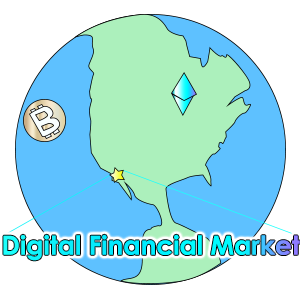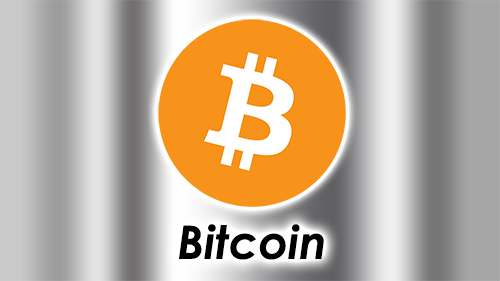We present a complete guide to understanding Bitcoin (BTC) Crypto and it’s technology in the field of cryptocurrency development. We include helpful explanations, illustrated guides, historical data, and technical details. This article is brought to you by Digital Financial Market
Bitcoin (BTC) Cryptocurrency
Bitcoin is the first Cryptocurrency and Peer-to-Peer Blockchain network. By using only codes and software, BTC is used as a financial tool to store value and make transactions across the network. As the first of its concept to be developed, Bitcoin has remained as the highest valued cryptocurrency by market cap since its creation.
Bitcoins holds the title of highest return from any cryptocurrency ever, with an over 1,000,000% return over the last 15 years.
See Bitcoin (BTC) Official Website
Key Points About Bitcoin
- Finite supply of only 21 Million BTC
- Most widely adopted Cryptocurrency
- Created in 2009 as the first ever Cryptocurrency
- Continues to disrupt traditional financial systems
- Can increase security and transparency in finance
Bitcoin (BTC) Price Chart
Bitcoin (BTC) Historical Price Chart
The Enigma of Bitcoin: Unravelling the Fascinating World of Cryptocurrency
Bitcoin, often referred to as the “king of cryptocurrencies,” has captivated the world with its mysterious origins, decentralized nature, and unprecedented growth in value. But beyond the numbers and technical jargon lies a revolutionary concept that has the potential to reshape the financial industry as we know it.
The Birth of a Legend: Bitcoin Network
Bitcoin’s creation story is shrouded in mystery, with its anonymous founder, Satoshi Nakamoto, leaving behind only a white paper and a cryptic message. Some believe that Nakamoto is a pseudonym for a group of individuals, while others speculate that it could be a government or a corporation. But one thing is for certain, the identity of Satoshi Nakamoto remains a mystery to this day.
Decentralization: The Key to Bitcoin’s Success
Unlike traditional currencies, which are controlled by governments and financial institutions, Bitcoin operates on a decentralized network. This means that there is no central authority controlling the supply or regulation of the currency. Instead, transactions are verified and recorded on a public ledger called the blockchain, maintained by a network of computers all over the world.
This decentralization gives Bitcoin several key advantages, such as increased security and transparency, as well as immunity to inflation. It also allows for peer-to-peer transactions without the need for a middleman, such as a bank or government.
The Rise of the Digital Gold
Bitcoin’s value has been on a roller coaster ride since its creation, with its price skyrocketing from mere cents to thousands of dollars. This has led to the popularization of the phrase “digital gold” to describe the cryptocurrency.
The reason for Bitcoin’s value is rooted in its scarcity. Unlike fiat currency, which can be printed by governments, there is a limited supply of Bitcoins, with a cap of 21 million. As demand for the digital currency increases, so does its price.
DeFi: A New Era of Finance
Bitcoin’s decentralization and scarcity have led to the creation of a new financial ecosystem, where individuals have more control over their assets and where traditional financial institutions are no longer necessary.
This has led to the emergence of new financial services such as decentralized exchanges and lending platforms, as well as the potential for the development of new business models. It has also sparked a renewed interest in the concept of digital currencies and has led to the creation of thousands of other cryptocurrencies.
The Impact of Bitcoin
Bitcoin is more than just a digital currency; it’s a revolutionary concept that has the potential to reshape the financial industry. It’s mysterious origins, decentralized nature, and unprecedented growth in value make it a fascinating subject to study and explore. As the world continues to unfold the enigma of Bitcoin, one thing is for certain, the future of finance will never be the same.Regenerate responseOutput in
Bitcoin FAQ
What is Bitcoin (BTC)?
Bitcoin, often referred to as BTC, is a decentralized digital currency that allows for peer-to-peer transactions without the need for a middleman, such as a bank or government. It was created in 2009 by an unknown individual or group of individuals going by the pseudonym Satoshi Nakamoto.
How Does Bitcoin Work?
Bitcoin transactions are recorded on a public ledger called the blockchain. The blockchain is a decentralized and distributed ledger that is maintained by a network of computers all over the world. Each block on the blockchain contains a record of multiple transactions, and once a block is added to the blockchain, it cannot be altered.
To make a transaction using Bitcoin, an individual must have a digital wallet, which allows them to store, send, and receive Bitcoins. The individual can then initiate a transaction by sending a certain amount of Bitcoins from their digital wallet to another individual’s digital wallet. The transaction is then broadcast to the entire network of computers on the blockchain.
Once the transaction is broadcast, it is verified by other computers on the network called “nodes.” The nodes verify the transaction by ensuring that the individual initiating the transaction has enough Bitcoins in their digital wallet to complete the transaction, and that the transaction is valid. Once the transaction is verified, it is added to the next block on the blockchain, and the transaction is complete.
Why is Bitcoin Valuable?
Bitcoin’s value comes from the fact that it is a scarce resource. Unlike fiat currency, which can be printed by governments, there is a limited supply of Bitcoins. The total supply of Bitcoins is capped at 21 million, with 18.7 million currently in circulation. This scarcity, combined with increasing demand for the digital currency, has led to an increase in the price of Bitcoin.
How Can I Get Bitcoin?
There are a few ways to acquire Bitcoin. The most common way is through a process called “mining.” Mining is the process of solving complex mathematical equations to validate transactions on the blockchain. Miners are rewarded with a certain amount of Bitcoins for each block they add to the blockchain.
Another way to acquire Bitcoin is through purchasing it on a cryptocurrency exchange. These exchanges allow individuals to buy and sell Bitcoin and other digital currencies.
Other Bitcoin FAQ
- “What is Bitcoin and How Does it Work?”
- “Why is Bitcoin So Popular?”
- “How to Buy Bitcoin?”
- “What Makes Bitcoin Valuable?”
- “Where to Store Bitcoin Safely?”
- “How to Use Bitcoin for Transactions?”
- “What are the Risks of Investing in Bitcoin?”
- “How to Protect Your Bitcoin from Hackers?”
- “What are Bitcoin Mining Pools?”
- “Why do Some People Oppose Bitcoin?”
- “How to Fix Common Bitcoin Errors?”
- “What is the Future of Bitcoin?”
- “Why is Bitcoin’s Price So Volatile?”
- “How to Set Up a Bitcoin Wallet?”
- “What are the Different Types of Bitcoin Wallets?”
- “Why Should You Consider Investing in Bitcoin?”
- “How to Track the Value of Your Bitcoin Investments?”
- “What are the Advantages and Disadvantages of Bitcoin?”
- “How to Choose the Right Bitcoin Exchange?”
- “Why is Bitcoin’s Blockchain Important?”
- “What are the Benefits of Owning Bitcoin?”
- “How to Avoid Scams in the Bitcoin Market?”
- “What is the Bitcoin Halving?”
- “Why do People Use Bitcoin Anonymously?”
- “How to Ensure the Security of Your Bitcoin Transactions?”
- “What are the Common Uses of Bitcoin?”
- “How to Speed Up Slow Bitcoin Transactions?”
- “What is the History of Bitcoin?”
- “Why is Bitcoin So Controversial?”
- “How to Troubleshoot Bitcoin Transaction Issues?”
- “What are the Different Ways to Buy Bitcoin?”
- “Why are Some Countries Banning Bitcoin?”
- “How to Store Bitcoin for the Long-Term?”
- “What are the Different Bitcoin Investment Strategies?”
- “How to Use Bitcoin for Online Shopping?”
- “What are the Best Bitcoin Wallets for Mobile?”
- “How to Create a Bitcoin Paper Wallet?”
- “What is the Maximum Number of Bitcoins that Can be Mined?”
- “Why is Bitcoin Called a Decentralized Currency?”
- “How to Keep Your Bitcoin Safe During a Hard Fork?”
- “What are the Different Bitcoin Trading Platforms?”
- “Why is the Value of Bitcoin So Hard to Predict?”
- “How to Send and Receive Bitcoin?”
- “What are the Different Bitcoin Mining Methods?”
- “Why are Some Governments Scared of Bitcoin?”
- “How to Invest in Bitcoin for Beginners?”
- “What are the Different Ways to Sell Bitcoin?”
- “Why is the Bitcoin Network so Secure?”
- “How to Buy Bitcoin with PayPal?”
- “What is the Relationship between Bitcoin and Blockchain?”
- “Why is the Bitcoin Community So Passionate?”
- “How to Store Bitcoin Offline?”
- “What are the Different Types of Bitcoin Transactions?”
- “Why is Bitcoin’s Energy Usage a Concern?”
- “How to Buy Bitcoin with a Credit Card?”
- “What is the Process of Mining Bitcoin?”
- “Why is Bitcoin’s Scalability a Challenge?”
- “How to Invest in Bitcoin Stock?”
- “What are the Different Ways to Earn Bitcoin?”
Images are Rights Reserved

